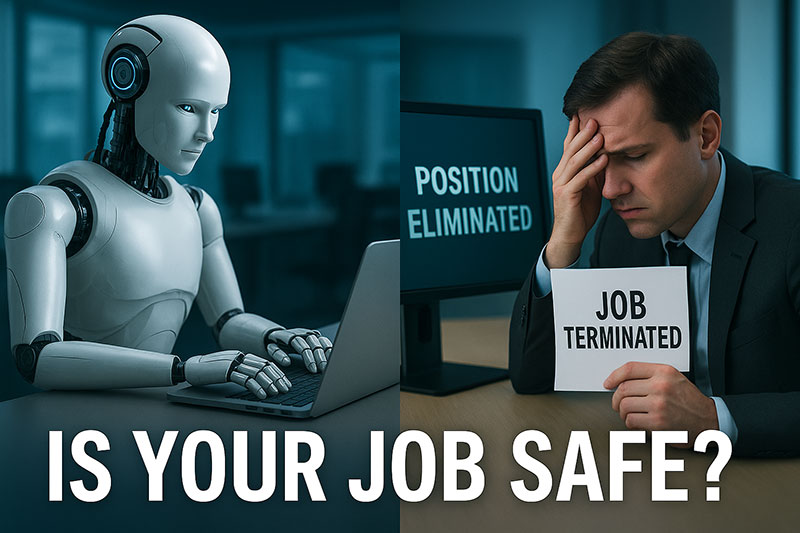Automation, AI, and shifting consumer habits are transforming the job market at lightning speed. While new roles are being created, others are quietly vanishing — and some may be gone entirely by 2030.
In this article, we explore the jobs most at risk, the technology replacing them, and what you can do today to future-proof your career.

Why Are Jobs Disappearing?
Three major trends are accelerating job displacement:
-
Artificial Intelligence (AI) – Automating repetitive and data-driven tasks
-
Robotics – Replacing manual labor in warehouses, manufacturing, and agriculture
-
Digital Transformation – Moving services online, reducing the need for certain in-person roles
A 2023 McKinsey report predicted that up to 12 million jobs in the U.S. could be lost to automation by 2030 — especially in low-wage and routine-task sectors.
Jobs Likely to Disappear by 2030
Here’s a breakdown of the most vulnerable careers:
| Job Title | Why It’s at Risk | Replaced By |
|---|---|---|
| Data Entry Clerks | Routine, repetitive input tasks | AI, OCR software |
| Telemarketers | Declining ROI, consumer resistance | AI chatbots, automated dialing |
| Travel Agents | DIY platforms dominate | Expedia, Google Flights, AI trip planners |
| Cashiers | Rise of self-checkouts and mobile pay | Kiosks, Amazon Just Walk Out |
| Bank Tellers | Online banking and mobile apps | Fintech platforms |
| Postal Service Workers | Decline in physical mail volume | Digital communications |
| Fast Food Workers (front-line) | Labor-saving automation | Self-order kiosks, food robots |
| Parking Enforcement Workers | Sensor-based systems | Smart meters, apps |
| Print Journalists | Digital-first news shift | AI-generated content, blogs |
| Dispatchers (e.g., taxis) | GPS-based ride-hailing apps | Uber, Lyft algorithms |
Related: Best Tech Certifications for Non-Coders
Sectors at High Risk
These industries are expected to be hit the hardest:
-
Retail
-
Transportation & Warehousing
-
Food Service
-
Manufacturing
-
Administrative Services
According to PwC’s workforce forecast, automation could impact up to 30% of global jobs by the mid-2030s.
Jobs That Are Safe (for Now)
You’re less likely to be replaced if your job requires:
-
Emotional intelligence and human connection (e.g., healthcare, counseling)
-
Strategic thinking and decision-making (e.g., leadership roles)
-
Creativity and innovation (e.g., designers, writers, marketers)
-
Skilled trades with hands-on expertise (e.g., electricians, plumbers)
Explore: Top 10 Certifications That Can Boost Your Salary by $20,000+
What Can You Do About It?
Future-proofing your career starts now:
1. Upskill in AI & Tech Tools
Learn how to use AI rather than be replaced by it. Check out:
2. Embrace Lifelong Learning
Look for micro-certifications, bootcamps, and workshops to stay current.
3. Pivot to Growth Sectors
Jobs in healthcare, green energy, tech, and digital content are expanding.
4. Strengthen Soft Skills
Empathy, communication, critical thinking, and adaptability will always be in demand.
Final Thoughts
While change is inevitable, panic isn’t necessary. The future of work will belong to those who adapt, learn, and grow. Take control now, before the shift leaves your career behind.